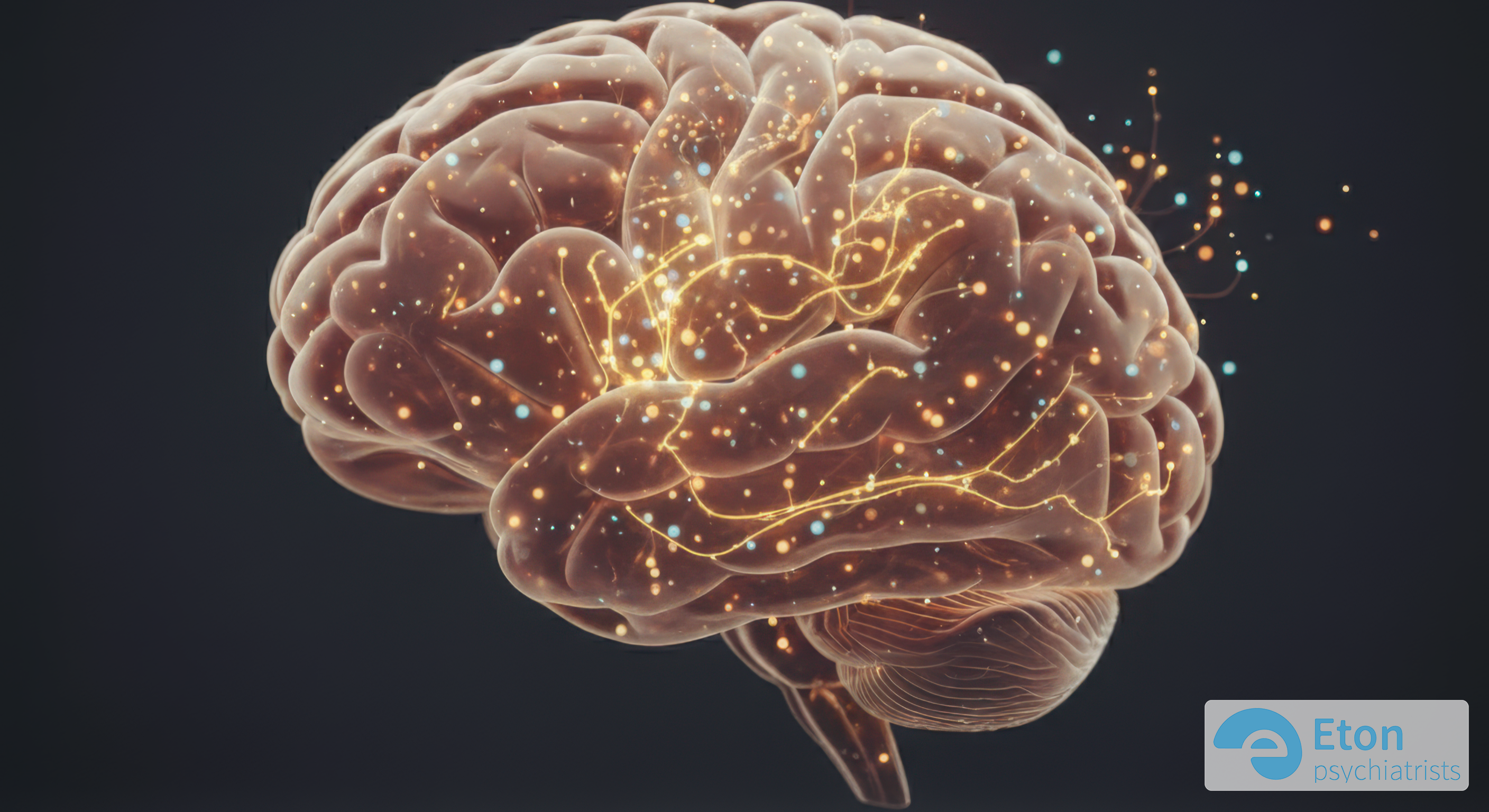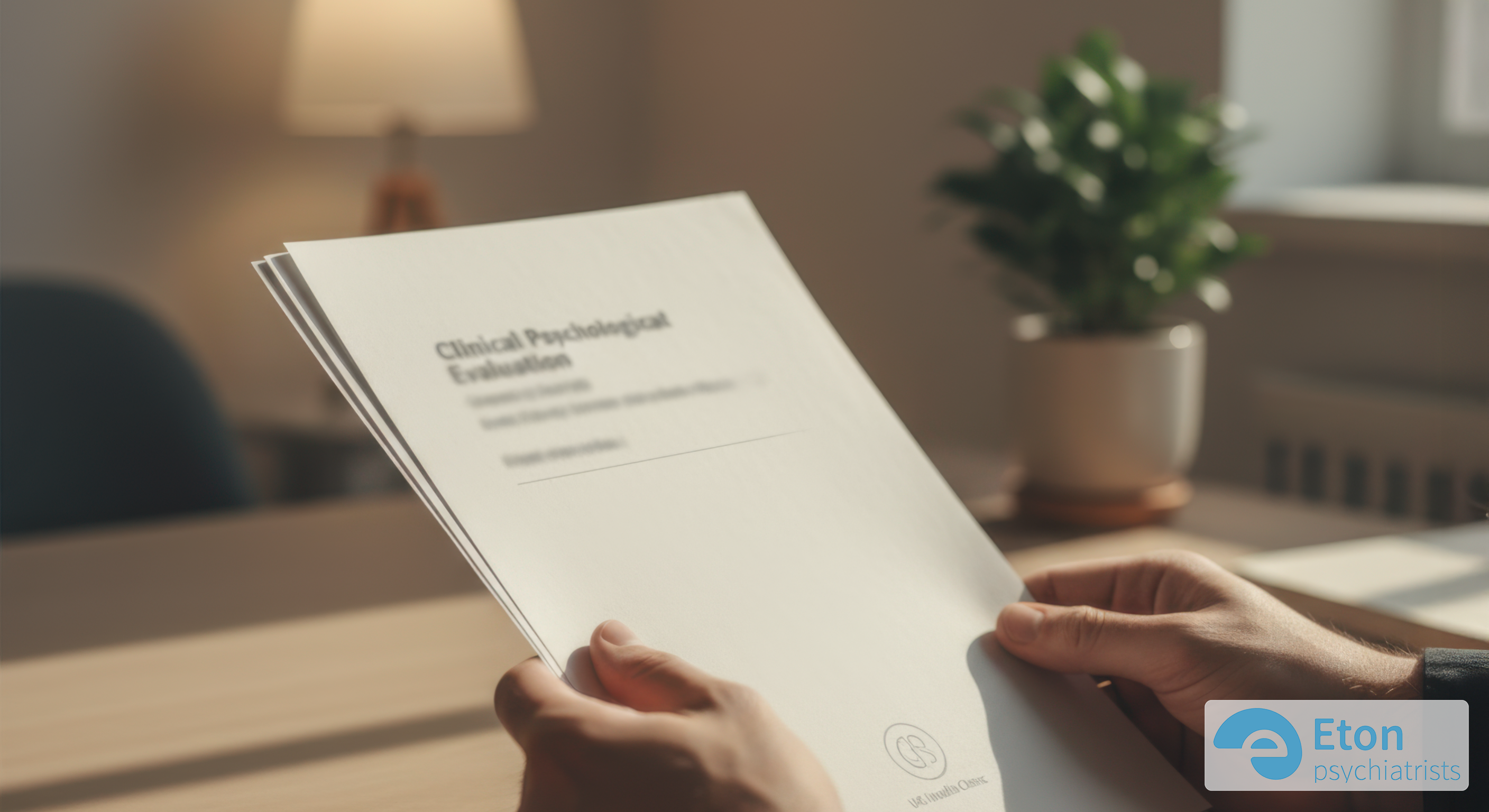
What’s ADHD?
Listen to the Article
For those on the go or who prefer listening, you can play the full audio version of this deep dive below.

Attention Deficit Hyperactivity Disorder, often shortened to ADHD, is more than just feeling restless or having trouble focusing. It is a recognised neurodevelopmental condition, meaning it stems from differences in how the brain develops and functions. These differences can impact daily life in numerous ways, from managing tasks at work to navigating relationships and regulating emotions. For many, understanding what ADHD truly means is the first step towards getting the right support and learning to thrive with their unique brain wiring. This guide explains the essentials clearly and simply.
Table of Contents
- What Does ADHD Stand For? The Clinical Definition
- How the ADHD Brain Works: Beyond the Label
- The Three Types of ADHD Presentation
- Common ADHD Traits and Symptoms in Adults
- What Causes ADHD? Unpacking the Science
- How is ADHD Diagnosed in the UK?
- Finding Support and Moving Forward
- Why Trust Eton Psychiatrists?
- Summary
- Frequently Asked Questions
What Does ADHD Stand For? The Clinical Definition
ADHD stands for **Attention Deficit Hyperactivity Disorder**. It is formally defined as a persistent pattern of inattention and hyperactivity impulsivity that interferes with functioning or development. Let’s break down those key terms:
- Inattention: This refers to difficulties sustaining focus, staying organised, managing time, and remembering details. It is not about laziness but rather a challenge in regulating attention.
- Hyperactivity: This involves excessive physical movement, restlessness, fidgeting, or feeling constantly “on the go.” In adults, hyperactivity often becomes more internalised, experienced as a feeling of inner restlessness rather than obvious physical motion.
- Impulsivity: This means acting hastily without fully considering the consequences, interrupting others, or having difficulty waiting for one’s turn.
Crucially, these traits must be present across multiple settings (like work and home) and cause significant impairment in daily life to meet the criteria for a clinical diagnosis.
How the ADHD Brain Works: Beyond the Label
ADHD is not a deficit of attention but rather a challenge with regulating it. The ADHD brain is often described as having an “interest based nervous system.” This means it can focus intensely on subjects that are genuinely engaging (hyperfocus) but struggles immensely to activate and sustain attention for tasks perceived as boring or difficult, even if they are important.

This difference is rooted in neurobiology. Key brain regions involved in executive functions, like the prefrontal cortex, often show different patterns of development and activity in individuals with ADHD. There are also differences in the way crucial neurotransmitters, particularly dopamine and norepinephrine, function. These chemicals play a vital role in regulating attention, motivation, and impulse control. In essence, the ADHD brain’s communication and control systems work differently, leading to the characteristic traits of the condition.
The Three Types of ADHD Presentation
ADHD doesn’t look the same in everyone. Clinicians recognise three main presentations, based on which symptoms are most dominant:

- Predominantly Inattentive Presentation: Individuals primarily struggle with focus, organisation, and task completion. They might appear daydreamy, forgetful, or easily distracted. Hyperactivity is minimal. This type was previously sometimes referred to as ADD (Attention Deficit Disorder), but that term is now outdated.
- Predominantly Hyperactive Impulsive Presentation: Individuals mainly exhibit restlessness, fidgeting, excessive talking, and impulsivity. They may struggle to sit still or wait their turn. Inattention is less prominent.
- Combined Presentation: This is the most common type, where individuals experience significant symptoms of both inattention and hyperactivity impulsivity.
It’s important to remember that presentation can change over a person’s lifetime. Many children who are primarily hyperactive may find their hyperactivity lessens or becomes internalised in adulthood, while inattentive symptoms persist or worsen.
Common ADHD Traits and Symptoms in Adults
While often diagnosed in childhood, ADHD frequently persists into adulthood, though symptoms may manifest differently. Some common signs in adults include:
- Chronic procrastination and difficulty starting tasks (task initiation).
- Poor time management skills, often being late (“time blindness”).
- Frequent forgetfulness, losing items like keys or wallets.
- Difficulty relaxing or persistent feelings of inner restlessness.
- Impulsive decision making (e.g., spending, career changes).
- Trouble managing strong emotions or frequent mood swings.
- Difficulty maintaining relationships or employment due to inconsistency or impulsivity.
- Tendency towards hyperfocus on interesting activities, often to the exclusion of responsibilities.
What Causes ADHD? Unpacking the Science
Despite common misconceptions, ADHD is not caused by poor parenting, excessive sugar intake, or too much screen time. While environmental factors can influence symptom severity, the root causes are primarily neurobiological and genetic.
Research strongly indicates that ADHD runs in families, suggesting a significant genetic component. Scientists have identified several genes associated with dopamine regulation that appear to play a role. Other factors that can contribute to the risk include prenatal factors like exposure to substances during pregnancy, premature birth, or low birth weight. It is best understood as a complex interplay between genetic predisposition and environmental influences that affect brain development.
How is ADHD Diagnosed in the UK?
Getting an official ADHD diagnosis in the UK involves a comprehensive assessment by a qualified healthcare professional, usually a psychiatrist or specialist psychologist. There is no single blood test or brain scan that can definitively diagnose ADHD.

The process, following NICE (National Institute for Health and Care Excellence) guidelines, typically includes:
- Detailed Clinical Interviews: Discussing your symptoms, developmental history (including childhood experiences), and how symptoms impact different areas of your life.
- Rating Scales and Questionnaires: Standardised forms completed by you, and sometimes by a partner, parent, or close friend, to provide objective measures of symptom frequency and severity.
- Review of Past Records: Looking at old school reports or previous medical records can provide valuable historical context.
- Ruling Out Other Conditions: The clinician will consider other potential causes for your symptoms, such as anxiety, depression, or thyroid issues.
While NHS waiting lists can be long, options like the ‘Right to Choose’ scheme in England or seeking a private assessment can provide faster routes to clarity.
Finding Support and Moving Forward
An ADHD diagnosis is not an endpoint but a starting point. It unlocks a deeper understanding of yourself and opens doors to effective support strategies. Treatment is often multifaceted and tailored to the individual, potentially including:
- Medication: Stimulant or non-stimulant medications can be highly effective in managing core symptoms for many adults.
- Therapy: Approaches like Cognitive Behavioural Therapy (CBT) specifically adapted for ADHD can teach practical skills for managing time, organisation, and emotional regulation.
- Coaching: ADHD coaches provide practical support and accountability for developing strategies and achieving personal or professional goals.
- Lifestyle Adjustments: Building routines, improving sleep hygiene, incorporating regular exercise, and optimising nutrition can all significantly support ADHD management.
Why Trust Eton Psychiatrists?
At Eton Psychiatrists, we specialise in the assessment and treatment of ADHD and Autism in adults. Our team of experienced consultant psychiatrists provides NICE guideline compliant assessments, offering a clear, evidence based path to diagnosis and personalised support. We understand the nuances of ADHD beyond the stereotypes and are committed to helping you understand your brain and develop strategies to thrive.
Summary
- ADHD Defined: Attention Deficit Hyperactivity Disorder is a neurodevelopmental condition affecting attention regulation, hyperactivity, and impulsivity due to differences in brain function and chemistry.
- How the Brain Differs: ADHD involves challenges in regulating attention (not a lack of it), linked to differences in executive function areas and neurotransmitter systems like dopamine.
- Three Presentations: ADHD manifests as Predominantly Inattentive, Predominantly Hyperactive-Impulsive, or Combined type, and presentation can change over time.
- Causes are Neurobiological: ADHD is primarily caused by genetic factors and influences on brain development, not lifestyle choices or parenting.
- Diagnosis & Support: Diagnosis involves a comprehensive clinical assessment. Effective support often combines medication, therapy (like CBT), coaching, and lifestyle strategies.
Frequently Asked Questions
What is the main cause of ADHD?
Research strongly indicates that genetics is the main cause. ADHD is highly heritable and runs in families. Differences in brain structure and neurotransmitter function are also key factors.
Can ADHD go away?
ADHD is generally considered a lifelong condition. While some symptoms, especially physical hyperactivity, might decrease or change with age, the underlying neurological differences usually remain. Effective management strategies can significantly reduce the impact of symptoms.
What are the 3 main symptoms of ADHD?
The three core symptom categories are Inattention (difficulty sustaining focus, disorganisation, forgetfulness), Hyperactivity (restlessness, fidgeting, excessive talking), and Impulsivity (acting without thinking, interrupting others). A person might have symptoms predominantly from one category or a combination.
How can I get tested for ADHD in the UK?
You typically start by speaking to your GP, who can refer you to NHS specialist services (which may have long waiting lists) or discuss options like using ‘Right to Choose’ (in England) or seeking a private assessment from a qualified clinic or psychiatrist.



